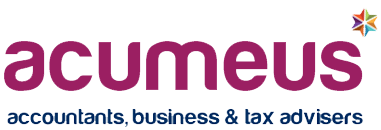You may have heard the term “Making Tax Digital” (MTD) and wondered what it means and how it affects you if you are a self-employed (sole trader) or a landlord. In this blog, we’ll explain MTD in simple terms, why it’s happening, and what you need to do to stay compliant.
What is Making Tax Digital?
Making Tax Digital (MTD) is a government initiative from HMRC aimed at making the UK tax system more efficient, accurate, and easier for everyone. Instead of keeping paper records and filing your tax return once a year, MTD requires you to:
- Keep digital records of your income and expenses.
- Use compatible software to track your accounts.
- Submit updates to HMRC every quarter (rather than just once a year).
Why Is HMRC Doing This?
HMRC wants to reduce errors, improve accuracy, and help people stay on top of their tax obligations. Many mistakes happen when people try to file annual tax returns using paper or spreadsheets. MTD aims to reduce these errors and make the process smoother for both individuals and businesses.
Who Does MTD Apply To?
Right now, MTD already applies to VAT-registered businesses, but from April 2026, it will also apply to:
- Sole traders (self-employed individuals) with income over £50,000.
- Landlords with rental income over £50,000.
From April 2027, it will be extended to those earning over £30,000.
If your income is below £30,000, MTD won’t apply to you just yet — but that could change in the future.
What Will You Need to Do?
If you fall within the income threshold, here’s what MTD will require you to do:
- Keep digital records of your income and expenses using accounting software (like QuickBooks, Xero, or FreeAgent).
- Send quarterly updates to HMRC using the software.
- Submit a final year-end declaration – this replaces the traditional Self Assessment tax return and confirms your final figures, including any personal income or reliefs.
You’ll still need to pay tax as usual (i.e. by 31 January of the next year). MTD doesn’t change how much tax you pay, just how you report it.
What Are the Benefits?
Although MTD might feel like more work at first, there are some advantages:
- Better visibility of your finances — with regular updates, you’ll always know how much tax you owe.
- Fewer surprises at tax time.
- Less paperwork in the long run.
- More accurate records (which helps you stay out of trouble with HMRC).
How Can We Help?
At Acumeus, we help sole traders and landlords transition smoothly to Making Tax Digital. Whether you need help choosing the right software, setting up your digital records, or managing your quarterly submissions, we’ve got you covered.
Final Thoughts
Making Tax Digital might sound overwhelming, but with the right support and a bit of preparation, it can actually make managing your finances easier. You’ll have a better grip on your tax position throughout the year and avoid nasty surprises come January.
Need help with preparing for Making Tax Digital? If you’re unsure whether MTD applies to you or how to get started, get in touch with us today for a free initial consultation. Please click here to book a consultation.
Disclaimer: This blog is intended for general informational purposes only. It does not constitute legal or professional advice. Please seek independent professional advice.

